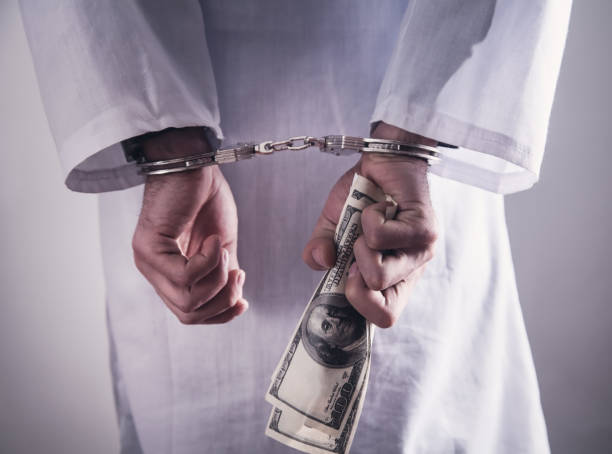
According to the FBI, health care fraud costs American taxpayers tens of billions of dollars every year. It can lead to higher taxes, higher costs for health care and insurance, and even expose people to unnecessary medical treatments. Because the costs are so high and the effects so far-reaching, state and federal law enforcement take health care fraud allegations very seriously.
For instance, the Department of Justice recently announced it had arrested 138 people in what it said were a variety of health care fraud schemes in 31 federal districts across the country. Among the arrested were 42 licensed medical professionals, including doctors and nurses. According to the Justice Department, the defendants’ actions cost the United States more than $1.4 billion.
Wide variety of allegations
Although the arrests were announced at the same time, the alleged crimes represent a wide variety of behavior in different settings.
Most of the cases involved alleged telemedicine fraud schemes. For instance, a number of the defendants were charged with ordering unneeded expensive medical equipment for medical facilities in exchange for kickbacks. The telemedicine cases also involved instances in which medical providers allegedly billed Medicare for consultations with patients that did not actually occur as claimed.
Other cases involved medical professionals who allegedly referred patients to fraudulent drug and alcohol dependency treatment programs in exchange for kickbacks. According to the Justice Department, some of these programs subjected patients to unnecessary medical procedures and they charged the government thousands of dollars for simple drug tests.
Many other cases involved allegedly fraudulent prescriptions for opioid pain relievers in exchange for cash or other kickbacks.
A variety of defendants
As you can see from this recent Justice Department announcement, the term “health care fraud” covers a wide range of crimes, and the people who end up facing health care fraud charges can come from different walks of life. Many of them are doctors, nurses or other licensed medical professionals, but they can also include equipment providers and suppliers who allegedly overcharge for their goods and services.
The defendants in health care fraud cases often include business entities – both nonprofit and for-profit companies – but just as often they include individuals.
Prosecutions often allege sophisticated schemes in which defendants went to great lengths to deceive others in order to make money. Typically, the more elaborate cases are the ones that make the news.
Behind these charges there is often a relatively straightforward and rather sad story involving someone who suffered from addiction, who got in over their head, or who simply made a mistake. And sometimes the allegations are completely wrong altogether.
(This article taken from www.bfhelaw.com )
If you or a loved one have questions or need assistance with Bail Bond services in the Chattanooga area, The Bail Bondsmen at Gary's Bail Bonds are ready to help. With more than 20 years of experience in the Bail Bond business, we have the practical experience and knowledge to get you out of jail fast. 24 hours a day, 7 days a week, Gary's Bail Bonds is there when you need us most. 423-664-1000
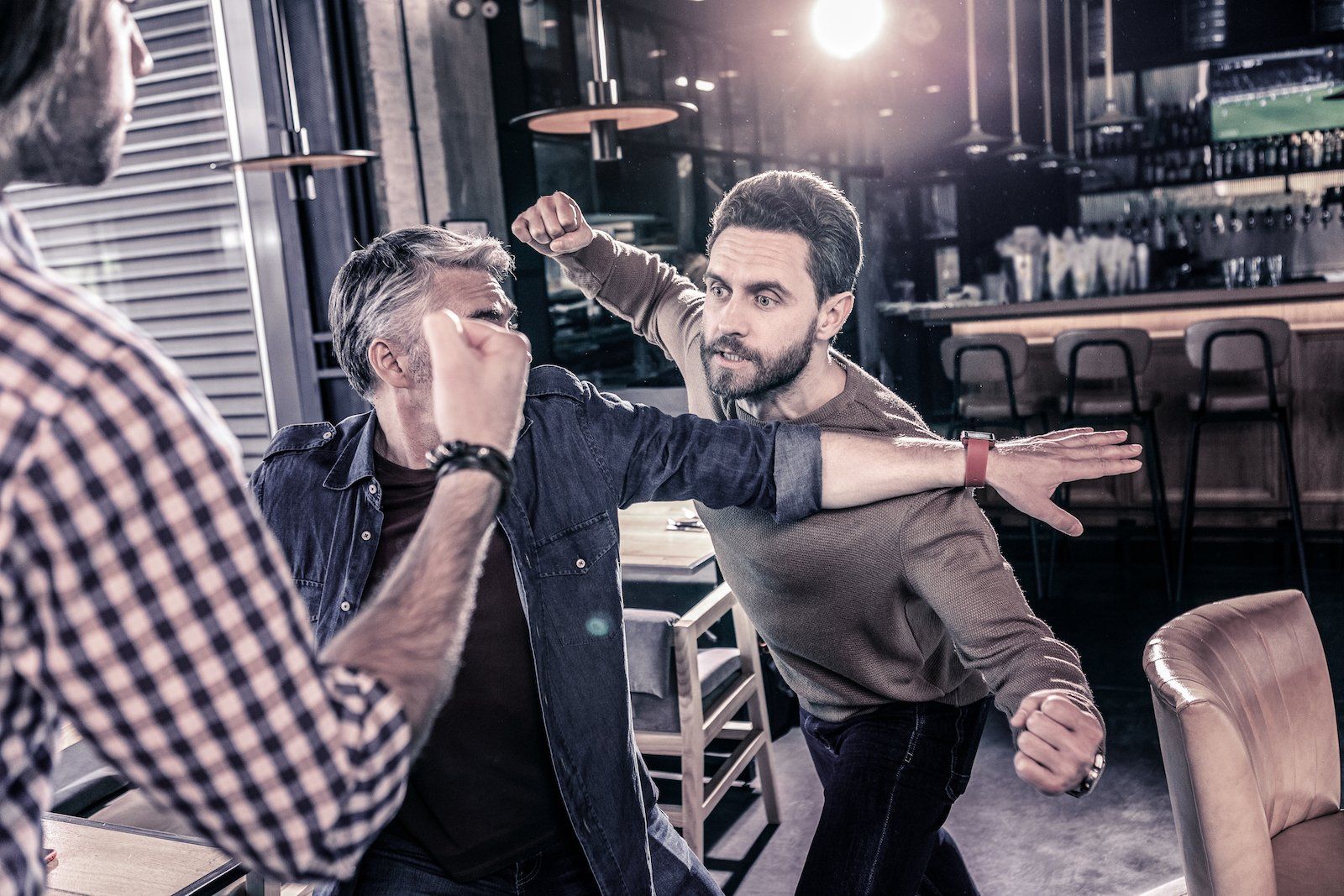
Life has been very challenging lately, and excessive drinking has been an unfortunate side effect for many people. When excessive drinking happens, it can lead to poor choices and reckless behavior. When life is particularly hard, some people overindulge in alcohol to help them forget about the hard parts of life. Sadly, while it may make someone make better in the short time, it can also lead to regretful decisions.
4 Types of Criminal Charges You Could Face From a Bar Fight
Fun is not overrated, until it gets out of hand and becomes a serious problem that could land you in legal trouble. Depending on the details of your situation, a bar fight could mean serious trouble, ranging from a misdemeanor assault charge to a felony. The severity of your charge is determined by a few contributing factors, like bodily harm to the victim and whether a weapon was used. In Tennessee, bodily harm and injury can range from a cut to scrapes or burns. Bodily injury differs in severity to serious bodily injury. Serious injury involves a near death risk or any range of life-threatening harm. In Tennessee, it is considered aggravated assault to inflict bodily harm with a weapon, so if you are involved in a bar or public fight that ends in bodily harm with a weapon – you can get into serious trouble.
If you are involved in a bar fight, you could face any of the following charges:
- Assault: Assault is often found together with battery, but they are separate charges. Assault and battery are not interchangeable. Causing another person to fear bodily harm can result in assault charges. Assault is threatening bodily harm and attempting violence towards another person.
- Battery: Unlike assault, battery happens when force is actually used to harm another person. If the injury isn’t serious, it is typically reflected in the punishment. However, if for example, a bar fight leads in serious harm to another person, you could face felony battery charges.
- Disturbing the Peace: Considered by most to be a minor offense, disturbing the peace is a misdemeanor offense that carries up to 90 days in jail and a fine of $400 or less. Disturbing the peace doesn’t mean there was a physical fight. It can also be the result of shouting insult and using provocative language to incite a fight.
- Manslaughter: Accidentally taking the life of another person is considered involuntary manslaughter. A heat of the moment and accidental death, like if one happened to die in a bar fight. Whether a manslaughter charge is categorized as voluntary or involuntary, it will carry jail time.
If you or a loved one have questions or need assistance with Bail Bond services in the Chattanooga area, The Bail Bondsmen at Gary's Bail Bonds are ready to help. With more than 20 years of experience in the Bail Bond business, we have the practical experience and knowledge to get you out of jail fast. 24 hours a day, 7 days a week, Gary's Bail Bonds is there when you need us most. 423-664-1000
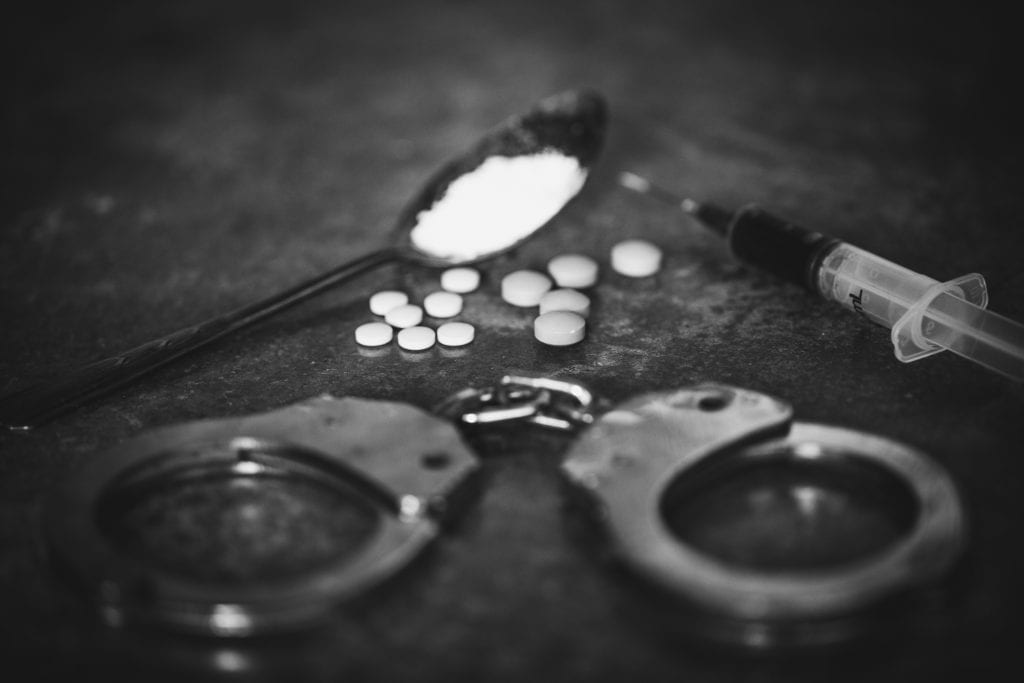
Tennessee, like most states, has specific rules governing controlled substances, particularly the possession, production, and sale of them. When drugs are criminalized, the law also typically includes prohibitions that prevent the ownership of materials used in connection with the illegal drug. Controlled materials used in connection with controlled substances are called paraphernalia.
What Is Drug Paraphernalia?
Paraphernalia, according to Tennessee law, is any material used to grown, use, or make an illegal drug. Many people are often surprised when they realize that objects and materials can have both a legal purpose, and when they are used for their created and stated purpose, they are legal. However, a legal item can immediately become an illegal one if found with controlled substances.
Common legal items that instantly become illegal when used with a controlled substance:
- Balloons
- Pens
- Plastic Bags
- Scales
- Small Spoons
These items could include a conviction because the material isn’t illegal – the action of using it to facilitate drug sales, usage, or creation makes the object part of a crime. The material or item won’t be identified as a criminal object unless law enforcement can prove it’s a drug tool. They will do this by examining any found item and materials for evidence of recent or previous drug usage. They look for signs of drug use like burns, residue, or reconfiguration. For example, reconfiguring a small spoon to make it easier for drug use would convert a legal object into an illegal one.
Tennessee Penalties for Possessing of Drug Paraphernalia
According to Tennessee law (TCA § 39-17-425), you can be convicted on drug paraphernalia charges if the prosecution can prove usage or intent to use the paraphernalia to complete any of the following drug-related tasks with a controlled substance:
“plant, propagate, cultivate, grow, harvest, manufacture, compound, convert, produce, process, prepare, test, analyze, pack, repack, store, contain, conceal, inject, ingest, inhale, or otherwise introduce into the human body.”
Personal possession of drug paraphernalia carries up to $2500 in fines, is a Class A misdemeanor, and can lead to just under 12 months in jail. While these fines and penalties vary by case, if found guilty, those charged could still be made to pay court costs or receive probation. The maximum fine is $2500 for a drug paraphernalia charge, even with prior convictions. However, the minimum fine does change based on an individual’s criminal history. If an individual has a prior offense, the minimum fine could change to:
- Fines of at $150+ for a first conviction
- Fines of at $250+ for any following convictions
- Drug paraphernalia charges can become a Class E felony when an individual is found to have these items with the intent to sell or deliver drugs. Fines for Class E felony drug paraphernalia charges vary, but those found guilty could face fines up to $50,000 and up to two years in prison.
(This article taken from www.pattonandpittman.com )
If you or a loved one have questions or need assistance with Bail Bond services in the Chattanooga area, The Bail Bondsmen at Gary's Bail Bonds are ready to help. With more than 20 years of experience in the Bail Bond business, we have the practical experience and knowledge to get you out of jail fast. 24 hours a day, 7 days a week, Gary's Bail Bonds is there when you need us most. 423-664-1000
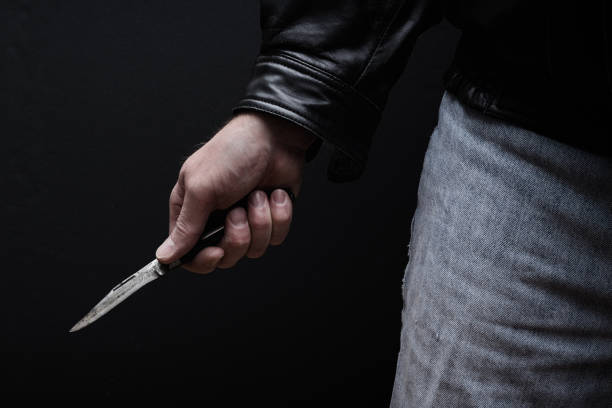
Due to Tennessee’s vague legislative language, it can be difficult to understand exactly what type of weapon will get you convicted of a weapons charge.
As of 2013, it is legal to own any type of knife, including:
- throwing stars;
- daggers;
- dirks;
- swords;
- sword canes; and
- machetes.
Concealed Weapon Charge
There are generally no prohibited knives under statute laws, but you may still be convicted if you are concealing a knife with the intent of using it against another person. Tennessee law focuses on the intent to commit a crime rather than on whether or not the the knife is concealed.
You could get a deadly weapon charge if you:
- commit an offense with a deadly weapon, other than a firearm, with the intent of employing it during an attempt to commit a dangerous crime or escape from the scene of a dangerous crime; or
- commit an offense with a deadly weapon with the intent of employing it during an attempt to commit a non-dangerous crime or escape from the scene of a non-dangerous crime.
It’s important to note that a dangerous crime is a felony such as murder, kidnapping, manslaughter, stalking, burglary, or drug offenses. While a switchblade is legal in Tennessee, it’s important to note that if you possess a switchblade during the commission of a dangerous crime you are subject to a hefty fine or a more severe sentence.
Carrying a Knife onto School Property
It’s considered a crime for any person to possess and/or carry a knife (open or concealed) onto school property if it is not being used for the sole purpose of instruction or school-sanctioned ceremonial reasons.
School property consists of:
- buildings;
- buses;
- campus grounds;
- recreation areas; and
- athletic fields.
If you are found carrying a knife on school grounds, you could face a felony conviction with penalties of up to 6 years in prison and a fine of up to $3,000.
(This article taken from www.pattonandpittman.com )

It is a crime in Tennessee for any person to harass another person by any form of communication, including email, text message, or social networking posts. The crime may escalate to a felony if the victim is under 18. And, Tennessee law directs all school districts to develop and implement a policy prohibiting cyberbullying of students with discipline for violations spelled out.
Anyone who uses a smart phone, laptop, or other device to follow, harass, or threaten another person can be prosecuted under various Tennessee criminal laws.
Harassment
It is a misdemeanor in Tennessee for any person to transmit or send messages that "knowingly annoy or alarm" the recipient of the message. (Tenn. Code Ann. § 39-17-308.) A person engaging in such conduct is guilty of criminal harassment.
And, anyone who posts or transmits an image to another person is guilty of harassment, if:
- the person posting or transmitting maliciously intends to be perceived by the victim as a threat, and
- a reasonable person viewing the image would perceive it as a threat. (Tenn. Code Ann. § 39-17-308.)
So, sending an annoying or alarming text message, for example, is a form of harassment under Tennessee law
Stalking
By making repeated contact with another person without that person's consent, including contact through electronic communications or via the internet, an individual in Tennessee may be engaging in criminal stalking. (Tenn. Code Ann. § 39-17-315.) Criminal stalking is a Class A misdemeanor in Tennessee.
The crime becomes a Class E felony if the victim is under age 18 and the stalker is five or more years older than the victim. (Tenn. Code Ann. § 39-17-315.)
How is Cyberbullying Punished in Tennessee?
Harassment and stalking are Class A misdemeanor. (Tenn. Code Ann. § § 39-17-308, 39-17-315.) A person convicted of harassment may face a jail sentence of not greater than eleven months and twenty-nine (29) days, a fine not to exceed $2,500, or both. (Tenn. Code Ann. § 40-35-111.)
Under Tennessee's stalking law, if the victim was under 18 and the stalker was five or more years older than the victim, the stalker may be convicted of a Class E felony. (Tenn. Code Ann. § 39-17-315.) A person convicted of felony stalking may face a prison sentence of not less than one year and not more than six years, a fine not to exceed $3,000, or both. (Tenn. Code Ann. § 40-35-111.)
Schools
Tennessee requires all public school districts to adopt and enact anti-cyberbullying policies . (Tenn. Code Ann. § § 49-6-4503, 49-6-4504.) Cyberbullying is defined by Tennessee law as "bullying undertaken through the use of electronic devices." It includes cell phones, computers, email, text messaging, and web sites. (Tenn. Code Ann. § 49-6-4502.)
The policies must:
- define cyberbullying, harassment, intimidation, and bullying
- prohibit cyberbullying, harassment, intimidation, and bullying of students
- state the consequences to anyone who engages in prohibited conduct
- set forth the reporting procedure to be used by anyone experiencing or witnessing prohibited conduct, including anonymous reporting
- prohibit retaliation against anyone who reports prohibited conduct, and
- describe the investigation that the district will conduct following reports.
(Tenn. Code Ann. § 49-6-4503.)
In addition, the Tennessee law requires district policies to include a "procedure for discouraging and reporting conduct aimed at defining a student in a sexual manner or conduct impugning the character of a student based on allegations of sexual promiscuity." This provision is aimed at protecting students from damage to their reputations from rumors or allegations of sexual promiscuity.
The law also requires districts to provide annual training on the policy to teachers and administrators, as well as to notify students and parents of the policy.
Immunity from Lawsuits
A school employee who promptly reports an act of cyberbullying, harassment, intimidation, or bullying in compliance with the district policy cannot be sued for damages for failure to remedy the prohibited conduct. (Tenn. Code Ann. § 49-6-4505.)
(This article taken from www.criminaldefenselawyer.com )
If you or a loved one have questions or need assistance with Bail Bond services in the Chattanooga area, The Bail Bondsmen at Gary's Bail Bonds are ready to help. With more than 20 years of experience in the Bail Bond business, we have the practical experience and knowledge to get you out of jail fast. 24 hours a day, 7 days a week, Gary's Bail Bonds is there when you need us most. 423-664-1000
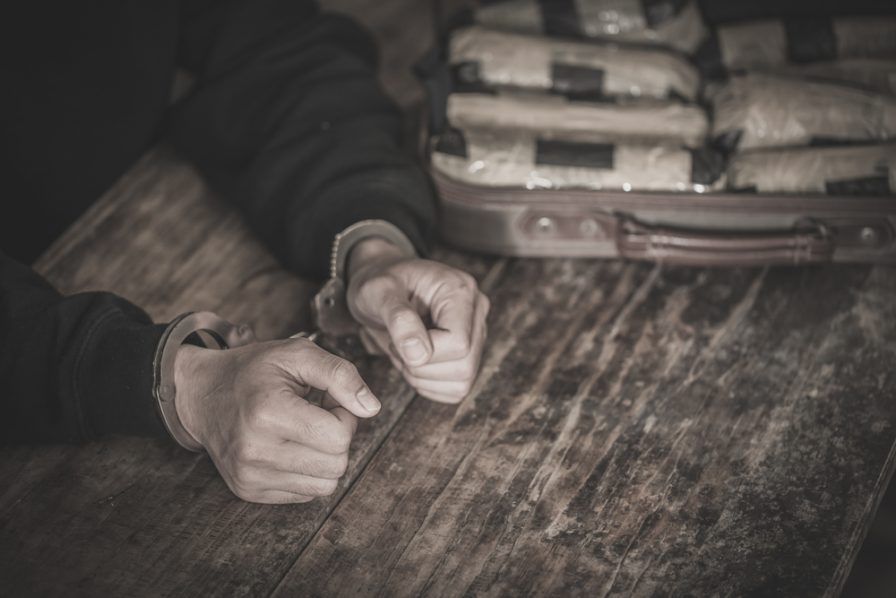
Many people caught with drugs will face possession charges. However, it is sometimes possible for the police or state prosecutors to turn a straightforward possession case into a case of possession with intent to distribute.
Defendant in such cases face serious consequences. How do the police establish the intent to distribute a drug?
Types of drugs
People caught with drugs typically claim they are for personal use, but the quantity of drugs might make police or prosecutors question that assertion. When someone has dozens of pills or more than a few grams of a drug, it might appear the person intends to distribute the drugs.
Having numerous types of drugs could cause the same suspicion. Many recreational drug users only abuse one or two substances; if police catch someone with multiple types of drugs, they might believe an intent to distribute exists.
Socialization
Do you frequently have visitors to your house? Do you talk about your side hustle on Facebook or sell personal items online? The traffic in and out of your residence and your digital interactions with other people could make you look like a drug dealer, even if there are completely innocent explanations for the behaviors.
Police may surveil your residence or subpoena your phone records to show that you frequently interact with people you do not know.
Other items in your possession
Scales used to weigh drugs or packaging for individual drug purchases might leave people to suspect drug trafficking rather than personal use. Innocent items you have in your house, like sandwich bags or postage scales, might make police officers suspect you of drug dealing.
(This article taken from www.levittandlevittlaw.com
)
If you or a loved one have questions or need assistance with Bail Bond services in the Chattanooga area, The Bail Bondsmen at Gary's Bail Bonds are ready to help. With more than 20 years of experience in the Bail Bond business, we have the practical experience and knowledge to get you out of jail fast. 24 hours a day, 7 days a week, Gary's Bail Bonds is there when you need us most. 423-664-1000
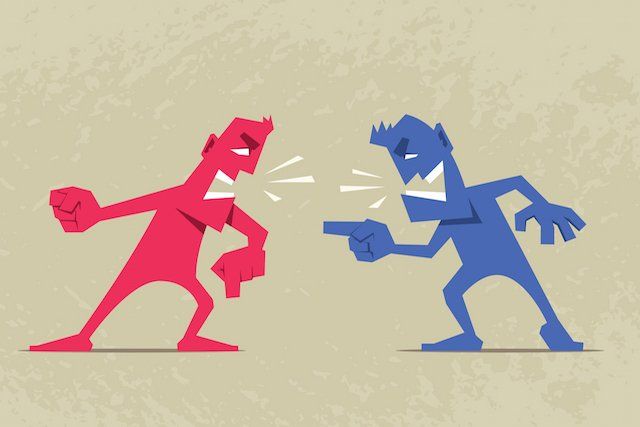
We’ve all heard the saying, “sticks and stones may break my bones, but words can never hurt me.” That’s not exactly true in Tennessee. Sometimes, words can hurt you – legally. While verbal assault may sound like a misnomer, the state of Tennessee considers it a crime if words are used to threaten bodily harm or imply an act of violence against another person. You may find yourself in hot water even if you don’t follow through on the threat!
According to the Tennessee Code (Tenn. Code Ann. § 39-13-101), a person commits assault who:
- intentionally, knowingly or recklessly causes bodily injury to another;
- intentionally or knowingly causes another to reasonably fear imminent bodily injury; or
- intentionally or knowingly causes physical contact with another, and a reasonable person would regard the contact as extremely offensive or provocative.
So, if you threaten someone to the point where they fear for their lives or bodily harm from you, then you can be charged with assault.
How Threats Can Be Used Against You
A threat could be used to prove your intentions to harm another person, thus compounding the severity of the crime. Following through on a threat can result in more severe consequences. In our technology-driven world, evidence of threatening intent has never been easier to obtain. In the past, threats, unless shouted in mixed company, were one person’s word against another’s. Now, whenever you say anything or do anything, you have to assume you are being recorded. Even if you threaten someone over the phone, you have to assume you are being recorded there as well.
Tennessee Codes § 39-13-601; § 39-13-604; and § 40-6-303 state that only one-party consent is required for an electronic recording. It further outlines the following:
“It is not unlawful for an individual who is a party to or has consent from a party of an in-person or electronic communication to record and or disclose the content of said communication unless the person is doing so for the purpose of committing a tortious or criminal act. An individual may also disclose the content of any electronic communication that is readily accessible to the general public.”
(This article taken from www.pattonandpittman.com
)

Facing a gun charge is a serious charge in Tennessee, and if you have a gun charge on your record, it could impact your life and the choices available to you for many years to come. If you are facing a weapons charge, you may not be aware of how serious a gun crime can be. It can derail your future and leave you with a criminal record that you’ll need to explain to employers. You shouldn’t try to fight weapons charges without a robust legal defense. Many people assume that all you need to possess a gun is a copy of the constitution, but that’s not true. Gun rights throughout the United States have stipulations that regulate the execution of the right to bear arms. Tennessee state law regulates the type of weapons open to legal possession, and the law also dictates how the weapons may be carried. If you were arrested for possession of a weapon, it’s important that you consult advice from a licensed attorney to understand what you are facing. It’s possible to mount a strong defense against weapons charges, but you shouldn’t delay.
Prohibited Weapons in Tennessee
If you aren’t facing a weapons charge, but you’re wondering if your weapon is legal, the following weapons are outlawed for citizens in Tennessee.
According to Tennessee Code 39-17-1302, Prohibited weapons:
( a) A person commits an offense who intentionally or knowingly possesses, manufactures, transports, repairs or sells:
(1) An explosive or an explosive weapon;
(2) A device principally designed, made or adapted for delivering or shooting an explosive weapon;
(3) A machine gun;
(4) A short-barrel rifle or shotgun;
(5) A firearm silencer;
(6) Hoax device;
(7) A switchblade knife or knuckles; or
Laws and Penalties for Gun Charges in Tennessee
All of the gun-related charges above are felonies that carry anywhere from one year in prison to up to 30 years. Gun charges are not always straightforward, and mistakes happen. It’s easy to misidentify weapons – leading to incorrect weapons charges. The prosecuting attorney has to prove that your weapon was illegal or that you weren’t allowed to be in possession of the weapon in question. So, the role of an attorney in these types of cases is invaluable. Unlawful carrying or possession of a weapon in Tennessee law applies to the unlawful possession of a firearm, club, or knife blade measuring 4 inches or more. A first offense of this crime is considered a misdemeanor. It carries a sentence of no more than 30 days in jail and a fine of no more than $500. Any subsequent violations of the same statute will be charged as a misdemeanor with an incarceration period of no more than six months. Unlawful possession charges can be elevated to a felony if the accused has been convicted of a felony or if the weapon was drawn and used in public. Possession of a gun while under the influence of alcohol is a misdemeanor crime that carries jail time of up to a year and a fine of $2500.
(This article taken from www.pattonandpittman.com )
If you or a loved one have questions or need assistance with Bail Bond services in the Chattanooga area, The Bail Bondsmen at Gary's Bail Bonds are ready to help. With more than 20 years of experience in the Bail Bond business, we have the practical experience and knowledge to get you out of jail fast. 24 hours a day, 7 days a week, Gary's Bail Bonds is there when you need us most. 423-664-1000
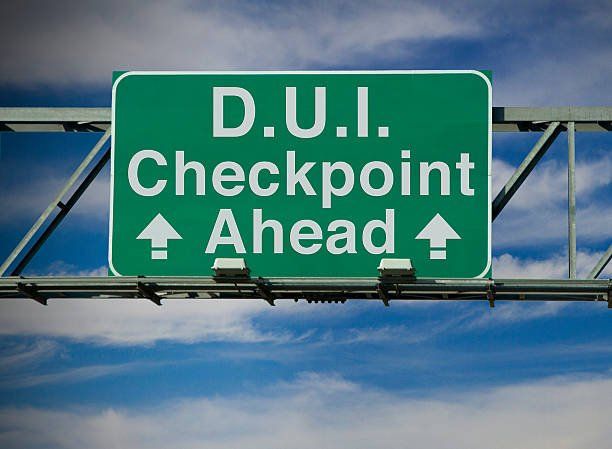
DUI checkpoints were designed to protect drivers and pedestrians from impaired drivers. Although police officers must have probable cause to pull over a motorist, this is not necessary at a DUI checkpoint. That said, there are some requirements law enforcement must fulfill for a checkpoint to be valid.
Law enforcement must announce a DUI checkpoint about a week in advance. Generally, this information is available in newspapers, on local news stations, and on law enforcement social media channels. Moreover, valid checkpoints must be visible through signage.
Know Your Rights
If you are approaching a DUI checkpoint and wish to bypass it, you can. However, you must not disobey the rules of the road or jeopardize anyone’s safety while doing so. DUI checkpoints tend to create substantial traffic due to the random traffic stops, so no one should assume you are intoxicated simply because you want to avoid it. Of course, if your driving appears erratic, law enforcement officers may stop you as you try to turn around.
While stopped at a DUI checkpoint, an officer will ask you for your license, which you must provide. Keep in mind that driving is a privilege, so you must comply with this request. If the officer asks if you have been drinking, you are not obligated to answer. If the officer believes you are intoxicated, however, he or she may arrest you, regardless.
If the law enforcement officer asks you to perform a series of field sobriety tests, you have the right to decline this request. In many cases, when officers make this request, they are already prepared to make an arrest. Do not build up the evidence against you by complying with this request.
Additionally, every state has an implied consent law, which means you must submit to a blood test or a chemical test. Noncompliance will result in serious consequences.
(This article taken from www.pattonandpittman.com )
If you or a loved one have questions or need assistance with Bail Bond services in the Chattanooga area, The Bail Bondsmen at Gary's Bail Bonds are ready to help. With more than 20 years of experience in the Bail Bond business, we have the practical experience and knowledge to get you out of jail fast. 24 hours a day, 7 days a week, Gary's Bail Bonds is there when you need us most. 423-664-1000
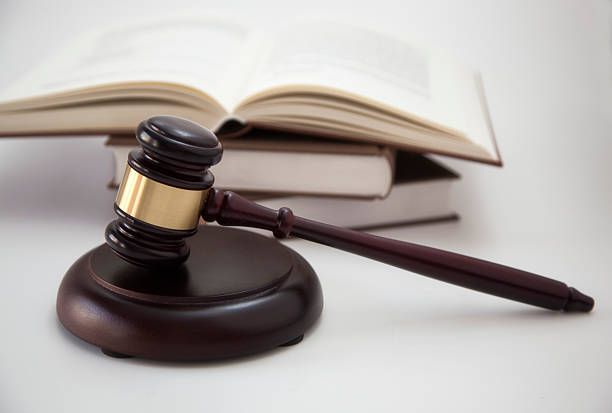
There are a host of reasons why someone may be wrongly convicted.
Regardless of the criminal offense they were accused of committing, many different factors can play a role in an unjust conviction or unfair ruling. These can include:
- Insufficient evidence
- A mistake during sentencing
- Misconduct of prosecutors
- Exclusion of evidence
- Improper jury instructions
Those who are struggling with the consequences of such a ruling may want to appeal the case. However, it is imperative to approach the criminal appeals process correctly.
A proactive approach to protecting rights
Failing to take the proper approach to appeal a case can be a costly and time-consuming error. The appeals process can be complicated and very stressful, which is why it is so pivotal for those who wish to appeal their case to be fully prepared for what lies ahead. A thorough investigation into what went wrong should be conducted.
In many instances, the appeals process can last for months or longer. Sometimes, appeals are denied, but even then, there may be additional options available.
Regrettably, many people have suffered as a result of unfairness during their trial, whether they had to deal with a judge who did not treat their case properly or some other serious problem.
(This article taken from www.levittandlevittlaw.com )
If you or a loved one have questions or need assistance with Bail Bond services in the Chattanooga area, The Bail Bondsmen at Gary's Bail Bonds are ready to help. With more than 20 years of experience in the Bail Bond business, we have the practical experience and knowledge to get you out of jail fast. 24 hours a day, 7 days a week, Gary's Bail Bonds is there when you need us most. 423-664-1000

According to the FBI, health care fraud costs American taxpayers tens of billions of dollars every year. It can lead to higher taxes, higher costs for health care and insurance, and even expose people to unnecessary medical treatments. Because the costs are so high and the effects so far-reaching, state and federal law enforcement take health care fraud allegations very seriously.
For instance, the Department of Justice recently announced it had arrested 138 people in what it said were a variety of health care fraud schemes in 31 federal districts across the country. Among the arrested were 42 licensed medical professionals, including doctors and nurses. According to the Justice Department, the defendants’ actions cost the United States more than $1.4 billion.
Wide variety of allegations
Although the arrests were announced at the same time, the alleged crimes represent a wide variety of behavior in different settings.
Most of the cases involved alleged telemedicine fraud schemes. For instance, a number of the defendants were charged with ordering unneeded expensive medical equipment for medical facilities in exchange for kickbacks. The telemedicine cases also involved instances in which medical providers allegedly billed Medicare for consultations with patients that did not actually occur as claimed.
Other cases involved medical professionals who allegedly referred patients to fraudulent drug and alcohol dependency treatment programs in exchange for kickbacks. According to the Justice Department, some of these programs subjected patients to unnecessary medical procedures and they charged the government thousands of dollars for simple drug tests.
Many other cases involved allegedly fraudulent prescriptions for opioid pain relievers in exchange for cash or other kickbacks.
A variety of defendants
As you can see from this recent Justice Department announcement, the term “health care fraud” covers a wide range of crimes, and the people who end up facing health care fraud charges can come from different walks of life. Many of them are doctors, nurses or other licensed medical professionals, but they can also include equipment providers and suppliers who allegedly overcharge for their goods and services.
The defendants in health care fraud cases often include business entities – both nonprofit and for-profit companies – but just as often they include individuals.
Prosecutions often allege sophisticated schemes in which defendants went to great lengths to deceive others in order to make money. Typically, the more elaborate cases are the ones that make the news.
Behind these charges there is often a relatively straightforward and rather sad story involving someone who suffered from addiction, who got in over their head, or who simply made a mistake. And sometimes the allegations are completely wrong altogether.
(This article taken from www.bfhelaw.com )
If you or a loved one have questions or need assistance with Bail Bond services in the Chattanooga area, The Bail Bondsmen at Gary's Bail Bonds are ready to help. With more than 20 years of experience in the Bail Bond business, we have the practical experience and knowledge to get you out of jail fast. 24 hours a day, 7 days a week, Gary's Bail Bonds is there when you need us most. 423-664-1000

Life has been very challenging lately, and excessive drinking has been an unfortunate side effect for many people. When excessive drinking happens, it can lead to poor choices and reckless behavior. When life is particularly hard, some people overindulge in alcohol to help them forget about the hard parts of life. Sadly, while it may make someone make better in the short time, it can also lead to regretful decisions.
4 Types of Criminal Charges You Could Face From a Bar Fight
Fun is not overrated, until it gets out of hand and becomes a serious problem that could land you in legal trouble. Depending on the details of your situation, a bar fight could mean serious trouble, ranging from a misdemeanor assault charge to a felony. The severity of your charge is determined by a few contributing factors, like bodily harm to the victim and whether a weapon was used. In Tennessee, bodily harm and injury can range from a cut to scrapes or burns. Bodily injury differs in severity to serious bodily injury. Serious injury involves a near death risk or any range of life-threatening harm. In Tennessee, it is considered aggravated assault to inflict bodily harm with a weapon, so if you are involved in a bar or public fight that ends in bodily harm with a weapon – you can get into serious trouble.
If you are involved in a bar fight, you could face any of the following charges:
- Assault: Assault is often found together with battery, but they are separate charges. Assault and battery are not interchangeable. Causing another person to fear bodily harm can result in assault charges. Assault is threatening bodily harm and attempting violence towards another person.
- Battery: Unlike assault, battery happens when force is actually used to harm another person. If the injury isn’t serious, it is typically reflected in the punishment. However, if for example, a bar fight leads in serious harm to another person, you could face felony battery charges.
- Disturbing the Peace: Considered by most to be a minor offense, disturbing the peace is a misdemeanor offense that carries up to 90 days in jail and a fine of $400 or less. Disturbing the peace doesn’t mean there was a physical fight. It can also be the result of shouting insult and using provocative language to incite a fight.
- Manslaughter: Accidentally taking the life of another person is considered involuntary manslaughter. A heat of the moment and accidental death, like if one happened to die in a bar fight. Whether a manslaughter charge is categorized as voluntary or involuntary, it will carry jail time.
If you or a loved one have questions or need assistance with Bail Bond services in the Chattanooga area, The Bail Bondsmen at Gary's Bail Bonds are ready to help. With more than 20 years of experience in the Bail Bond business, we have the practical experience and knowledge to get you out of jail fast. 24 hours a day, 7 days a week, Gary's Bail Bonds is there when you need us most. 423-664-1000

Tennessee, like most states, has specific rules governing controlled substances, particularly the possession, production, and sale of them. When drugs are criminalized, the law also typically includes prohibitions that prevent the ownership of materials used in connection with the illegal drug. Controlled materials used in connection with controlled substances are called paraphernalia.
What Is Drug Paraphernalia?
Paraphernalia, according to Tennessee law, is any material used to grown, use, or make an illegal drug. Many people are often surprised when they realize that objects and materials can have both a legal purpose, and when they are used for their created and stated purpose, they are legal. However, a legal item can immediately become an illegal one if found with controlled substances.
Common legal items that instantly become illegal when used with a controlled substance:
- Balloons
- Pens
- Plastic Bags
- Scales
- Small Spoons
These items could include a conviction because the material isn’t illegal – the action of using it to facilitate drug sales, usage, or creation makes the object part of a crime. The material or item won’t be identified as a criminal object unless law enforcement can prove it’s a drug tool. They will do this by examining any found item and materials for evidence of recent or previous drug usage. They look for signs of drug use like burns, residue, or reconfiguration. For example, reconfiguring a small spoon to make it easier for drug use would convert a legal object into an illegal one.
Tennessee Penalties for Possessing of Drug Paraphernalia
According to Tennessee law (TCA § 39-17-425), you can be convicted on drug paraphernalia charges if the prosecution can prove usage or intent to use the paraphernalia to complete any of the following drug-related tasks with a controlled substance:
“plant, propagate, cultivate, grow, harvest, manufacture, compound, convert, produce, process, prepare, test, analyze, pack, repack, store, contain, conceal, inject, ingest, inhale, or otherwise introduce into the human body.”
Personal possession of drug paraphernalia carries up to $2500 in fines, is a Class A misdemeanor, and can lead to just under 12 months in jail. While these fines and penalties vary by case, if found guilty, those charged could still be made to pay court costs or receive probation. The maximum fine is $2500 for a drug paraphernalia charge, even with prior convictions. However, the minimum fine does change based on an individual’s criminal history. If an individual has a prior offense, the minimum fine could change to:
- Fines of at $150+ for a first conviction
- Fines of at $250+ for any following convictions
- Drug paraphernalia charges can become a Class E felony when an individual is found to have these items with the intent to sell or deliver drugs. Fines for Class E felony drug paraphernalia charges vary, but those found guilty could face fines up to $50,000 and up to two years in prison.
(This article taken from www.pattonandpittman.com )
If you or a loved one have questions or need assistance with Bail Bond services in the Chattanooga area, The Bail Bondsmen at Gary's Bail Bonds are ready to help. With more than 20 years of experience in the Bail Bond business, we have the practical experience and knowledge to get you out of jail fast. 24 hours a day, 7 days a week, Gary's Bail Bonds is there when you need us most. 423-664-1000